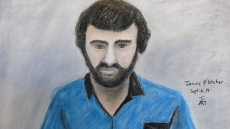Pre-menopausal women of South Asian origin might be more at risk of developing osteoporosis in later life, owing to higher levels of a by-product of bone resorption, a new study in the journal Bone reports.
Bone resorption is a natural process which enables the transfer of calcium from bone tissue into the bloodstream and is required to allow bone to adapt itself to challenges (e.g. change in a person's activity levels) and repair damage.
However, if excessive and not balanced by equivalent bone formation, overtime this can be detrimental to bone health, the study said.
The findings, reported in the journal Bone revealed that pre-menopausal South Asian women had higher levels of urinary N terminal telopeptide -- a by-product of bone resorption found in urine -- than their white counterparts, indicating elevated levels of bone resorption than would be expected for their age.
"The study showed that pre-menopausal South Asian women have the same level of bone resorption as a woman who has been through the menopause," said lead author Andrea Darling from the University of Surrey in Britain.
Typically high levels of this by-product are only found in post-menopausal women, which indicates that osteoclast cells in pre-menopausal South Asian women might be breaking down bones at a quicker rate than they are being reformed, making these women more susceptible to osteoporosis and fractures in later life.
In addition, fluctuations in levels of Vitamin D, -- crucial for maintaining healthy bones -- that is very high levels in summer but very low levels in winter, also led to higher levels of bone resorption.
For the study, the team examined bone resportion in over 370 pre and post-menopausal South Asian and white women in the Britain.





